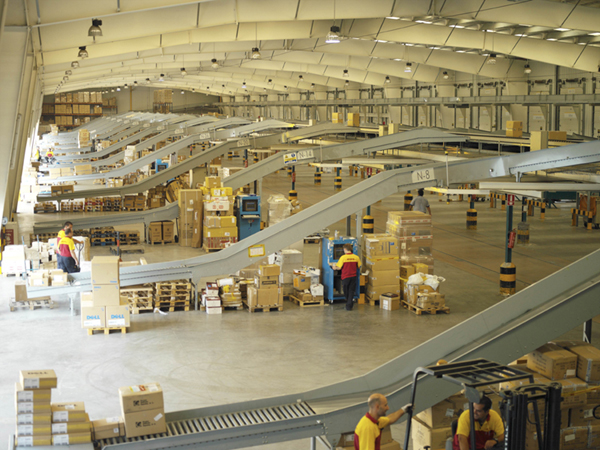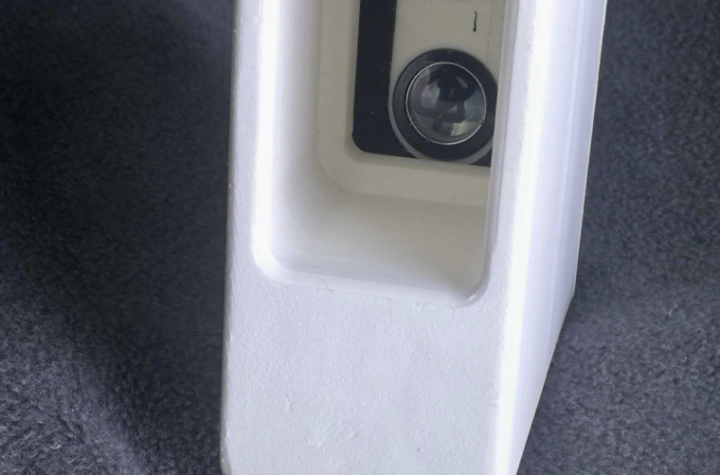
“Our automotive business continues to evolve as our customers’ business evolves”. – Michael A. Burns, President, Global Sector, Automotive and Industrial, DHL
DHL is one of the driving forces behind the changes in automotive logistics. By offering automotive companies a proven supply chain management capability – from strategy to planning and innovation – DHL makes it possible for auto companies to focus on the whole rather than its parts.
Modern logistics solutions include designing entire supply chains for inbound and after-market distribution. A comprehensive global inbound to manufacturing solution includes network design and planning, supply collection, freight management, configuration and subassembly, sequencing, and line side feeding. The Logistics Division is comprised of two different business units – DHL Global Forwarding (previously DHL Danzas and Air & Ocean and Exel Freight Management) and DHL Exel Supply Chain (earlier known as DHL Solutions and Exel Contract Logistics).
DHL’s value proposition is in its extensive knowledge about the automotive industry and its ability to provide solutions that cater to different companies’ automotive supply chain requirements. This includes pre-production strategy and development, global sourcing, operational services such as supply collection, freight forwarding, line side feeding and logistics support for after sales servicing.
The solutions offered by DHL include component logistics to optimize material flow prior to the assembly plant. Inbound transport logistics handles flows of components and service parts from suppliers. Material management includes all activities for procuring materials and managing the availability of supplies for production or finished goods for distribution. Service parts logistics deals with the service parts flow to dealers. DHL’s complete outsourcing solutions include transfer of staff, infrastructure financing, business optimization and supply chain integration.
In mid-2005, when Automotive Industries spoke to Bengt-Eric Sjolinder, global industry director, automotive with DHL Global Customer Solutions, he explained how DHL was the first to introduce the Local Distribution Center or LDC concept to help increase spare parts availability at the dealer level and offer a competitive advantage to the original equipment manufacturer (OEM). “Through the LDC concept, the dealer receives two to three deliveries per day (one during the night, one in the morning and one in the afternoon). If ordered in the morning, unplanned parts can be delivered to the dealer on the same day in the afternoon,” explained Sjolinder.
“This solution also cuts dealer administration and planning time as well as inventory. With a near 100% same day spare parts availability, the dealer stock can be reduced by approximately 75%,” he says.
DHL has worked with a number of leading automotive companies including Ford, Volvo Car Corporation and Johnson Controls. For Volvo DHL set up a three-layered logistics system with the first layer being the central distribution center which holds an inventory of every spare part. This feeds local distribution centers located near a group of dealers. This warehouse makes night deliveries of spares and also replenishes micro LDCs on a same day basis. Volvo’s third layer is the micro-LDC, which serves up to 15 dealers and is located within a maximum of two hours driving distance of them.
Automotive Industries spoke to Michael A. Burns, President, Global Sector, Automotive and Industrial, DHL, and asked him how well accepted DHL’s logistics management services were with the global automotive industry.
Burns: Our automotive business continues to evolve as our customers’ business evolves with continued expansion into Asia and Eastern Europe. Our strengths of customer intimacy and local country knowledge, couple with a global network, allow us to provide a leadership position to assist our customers in entering new markets and also strengthening current positions in key markets.
AI: What is the benefit for an automotive company to choose DHL’s logistics management service rather than setting up its own network?
Burns: Most outsourcing decisions are based on three factors. First, is logistics a core competency and an area in which the customer wants to continue to invest. Second, are there specialized skills and knowledge to which another entity has better access. Third, can an outside entity provide greater value (better cost, improved quality, higher levels of service) than can be accomplished internally.
DHL’s automotive practice works with the leading automotive companies in every region, and in support of global solutions. We have the ability to leverage these solutions and capabilities and continually invest in new capabilities in support of our customers’ needs. Our customers understand that they get deep automotive and 3PL solution experience coupled with the largest forwarding and contract logistics company in the world. This combination provides our customers significant opportunities to improve their supply chains and create value.
AI: What are some of the challenges you face while setting up these networks in different countries?
Burns: The biggest challenge DHL faces is capacity. Automotive companies typically cluster in similar countries and regions such as China, India and Thailand in Asia. This can create a challenge of capacity in terms of freight movement, real estate availability, labor, and management expertise, particularly with respect to implementations. Of course understanding local customs and regulations, language skills, and IT infrastructure can also be challenges. However, we are fortunate in DHL to have not only the local expertise, but also the ability to manage a global talent pool to overcome many of challenges of working in a global and growing environment.
AI: Are more automotive companies outsourcing their logistical services today and if so, why?
Burns: I’m not sure the pace of outsourcing is changing, but the scale and scope of outsourcing is changing. The complexity associated with extended, global supply chains is forcing both automotive companies and 3PLs to look for new ways to manage and control the supply chain. Increasingly we are being asked to take on larger and more complex programs, especially as it relates to global sourcing and supply programs. For example, one of our key solutions is International Supply Chain Management where we provide not only the physical movement of goods from a globally sourced location to a local manufacturing site, but also the information, visibility and management of the process. We have linked our track, trace, and control systems to our customers’ ERP systems and are deploying materials management teams that monitor the flow of materials from the source to the line. We are now beginning to work with Tier 1 manufacturers and other emerging global automotive players who want to do business with, and in some case compete with the global OEMs.
AI: How will the new structure of DHL (the formation of new divisions) affect business operations?
Burns: The combination of DHL and Exel has created a capability that is unmatched in the industry as the global number one in air freight, ocean freight, and contract logistics operating in over 220 countries and employing 144,000 people worldwide. The integration of the businesses is well ahead of schedule and has not surfaced any significant obstacles in terms of business operations or growth.
The Logistics Division is headed by John Allan (former CEO of Exel) and is built with a management team that draws from the strengths of DHL Air and Ocean, DHL Solutions, and Exel. For two (DHL and Exel) already large businesses, there was a surprisingly high level of complementary rather than overlapping capability and geographic strength. In addition, the ability leverage the DHL Express Division capabilities into our automotive solution sets is exciting. The new structure provides the base for delivering new solutions and on our promise to deliver value to our customers across their supply chains.
DHL tests alternative transport concepts
Companies from the logistics and automotive industries have joined forces with cities and researchers in the European Project, FIDEUS (Freight Intelligent Delivery of Goods on European Urban Spaces). The three-year project aims to handle distribution and delivery traffic in European city centers more efficiently and in a more environmentally friendly manner.
Three new types of vehicles are being developed and tested: an electric freight transporter for sensitive areas such as pedestrian zones, an enhanced 3.5-ton transporter and a 12-ton truck, optimized for city traffic. All three vehicle types are equipped with modern drive, loading and communication technology. Communications plays an important role in traffic management, in that it enables improved interactive communication with municipal traffic directing centers. Trucks would, for example, be able to register to use specific loading zones or react in a timely manner to disruption of access.
The project will be tested in Hanover, Barcelona, and Lyon.
The Pan-European project consortium includes vehicle manufacturers (Centro Ricerche FIAT, IVECO, Renault Trucks), robotics and fleet management specialists (Cybernetix; MIZAR Automazione),logistics companies (DHL Express; TNT Innight), local governments and supra-regional city alliances (Barcelona, Hannover, Lyon; IMPACTS) as well as universities and research institutes (University of Westminster; Fraunhofer Institut).











More Stories
Exploring E2C DX9660 with Aatif Ahmed Misbah, on Cabot Corporation’s sustainable innovations and performance advancements in the automotive industry
JD Edwards in the Automobile Industry
Blue Yonder accelerates automotive innovation with strategic flexis acquisition for supply chain transformation